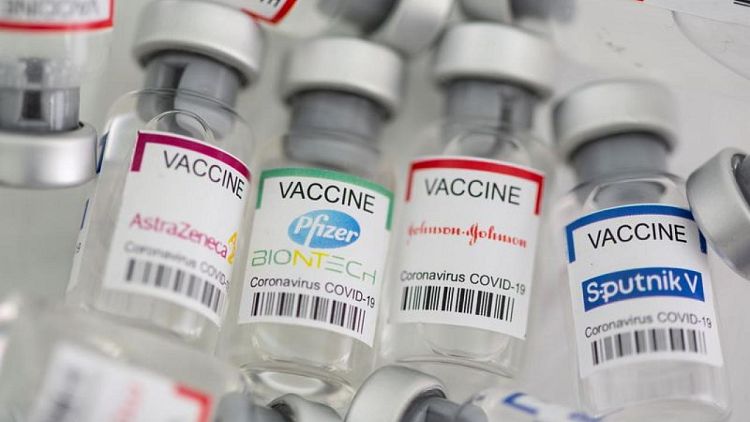By Emma Farge
GENEVA (Reuters) - The head of UNICEF on Monday asked G7 countries to donate supplies to the COVAX vaccine-sharing scheme as an emergency measure to address a severe shortfall caused by disruption to Indian vaccine exports.
India has curbed exports of the AstraZeneca vaccine made by its Serum Institute, which had been pledged to COVAX, to be used by the country as it battles a massive second wave of infections.
U.N. agency UNICEF, which is in charge of supplying coronavirus vaccines through COVAX, estimates the supply shortfall at 140 million doses by the end of May and about 190 million by the end of June.
"Sharing immediately available excess doses is a minimum, essential and emergency stop-gap measure, and it is needed right now," said UNICEF Executive Director Henrietta Fore, adding that this could help to prevent vulnerable countries from becoming the next global hotspot.
As G7 leaders prepare to meet in Britain next month, the head of the World Health Organization last week denounced the "moral catastrophe" of vaccine inequity, urging wealthy countries to donate doses rather than use them for children who are less vulnerable to severe disease.
Citing new research from scientific information and analytics company Airfinity, UNICEF's Fore said that G7 countries could donate about 153 million doses if they shared only 20% of their available supply over June, July and August.
This could be done while still meeting commitments to vaccinate their own populations, she said without providing further detail.
COVAX, run jointly by the WHO and the GAVI vaccine alliance, relies heavily on the AstraZeneca shot, which accounts for the bulk of the vaccines earmarked for early rollout as it seeks to provide 2 billion doses this year.
UNICEF said that other manufacturing limitations outside India had also slowed supply of COVAX doses but those delays are expected to be resolved by the end of June.
(Reporting by Emma Farge; Editing by David Goodman)


